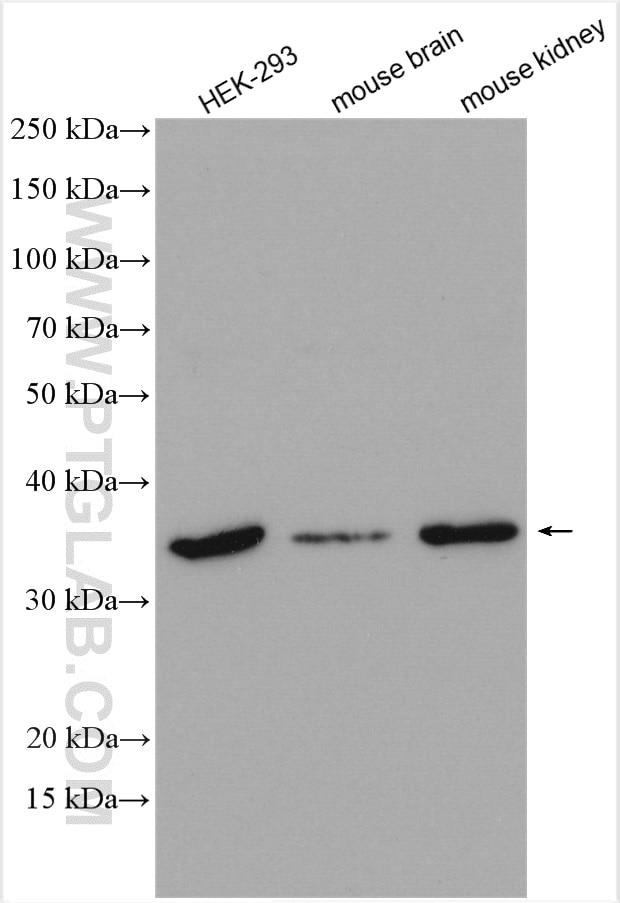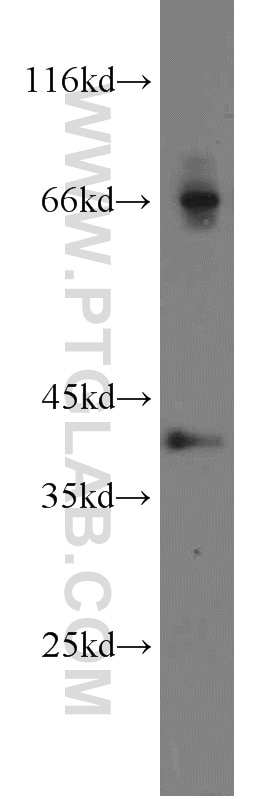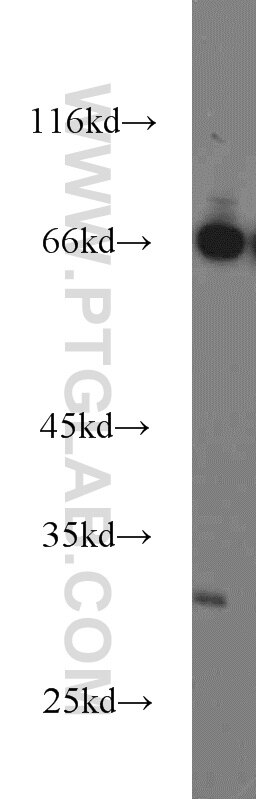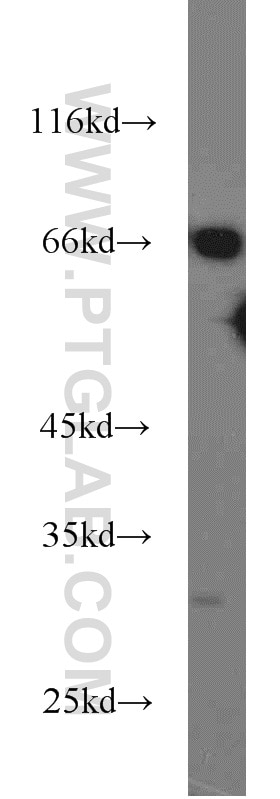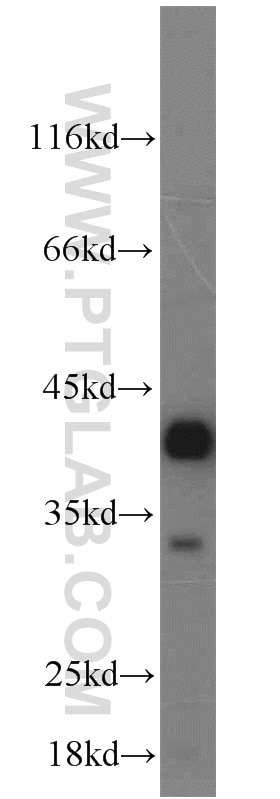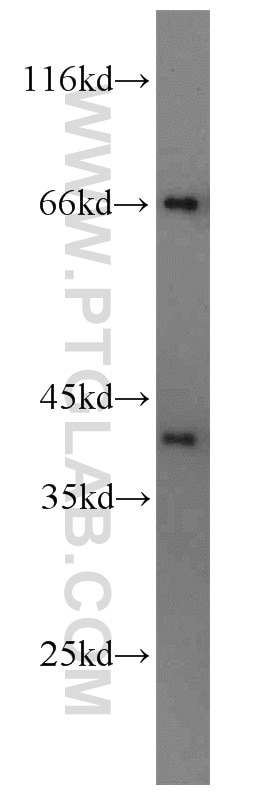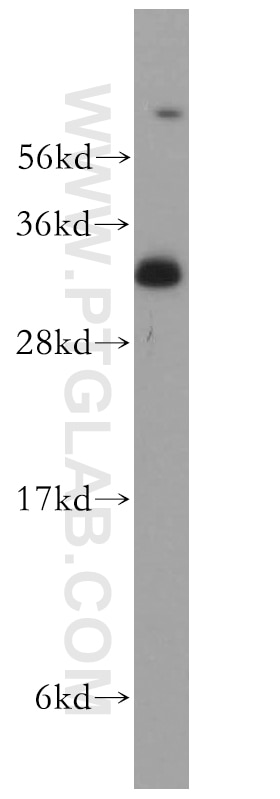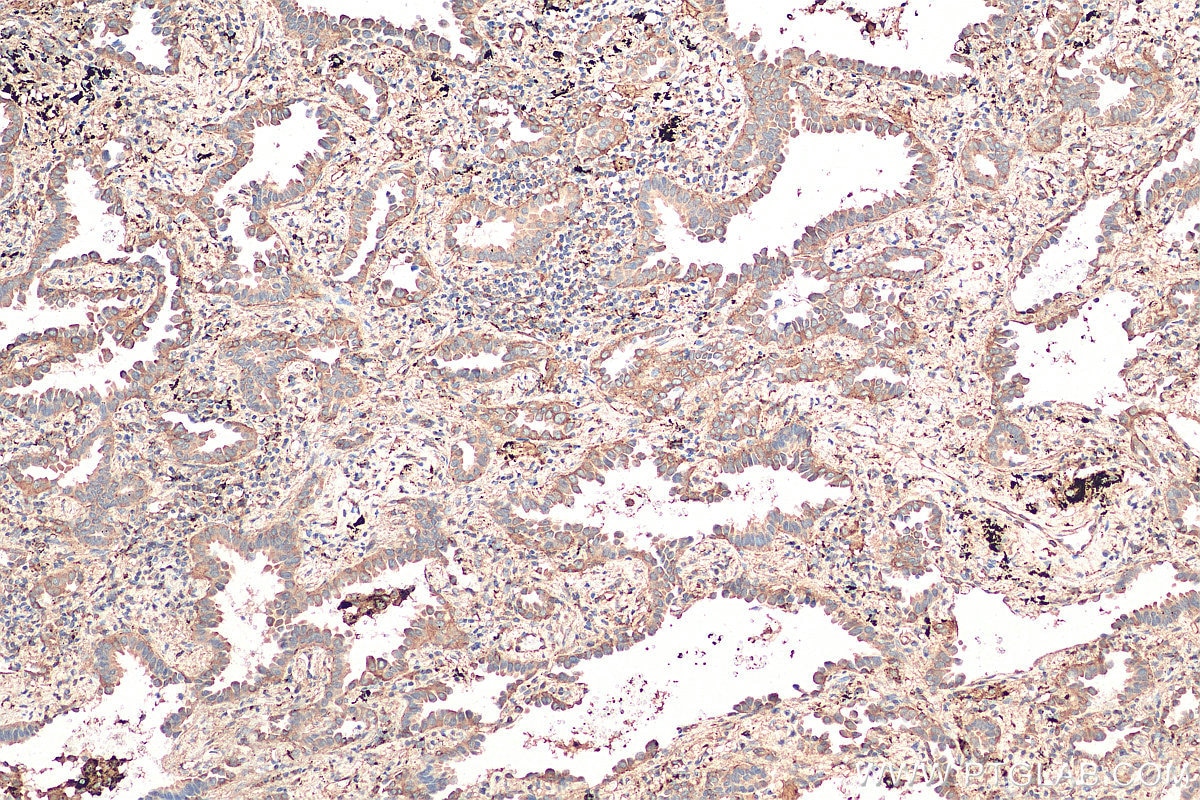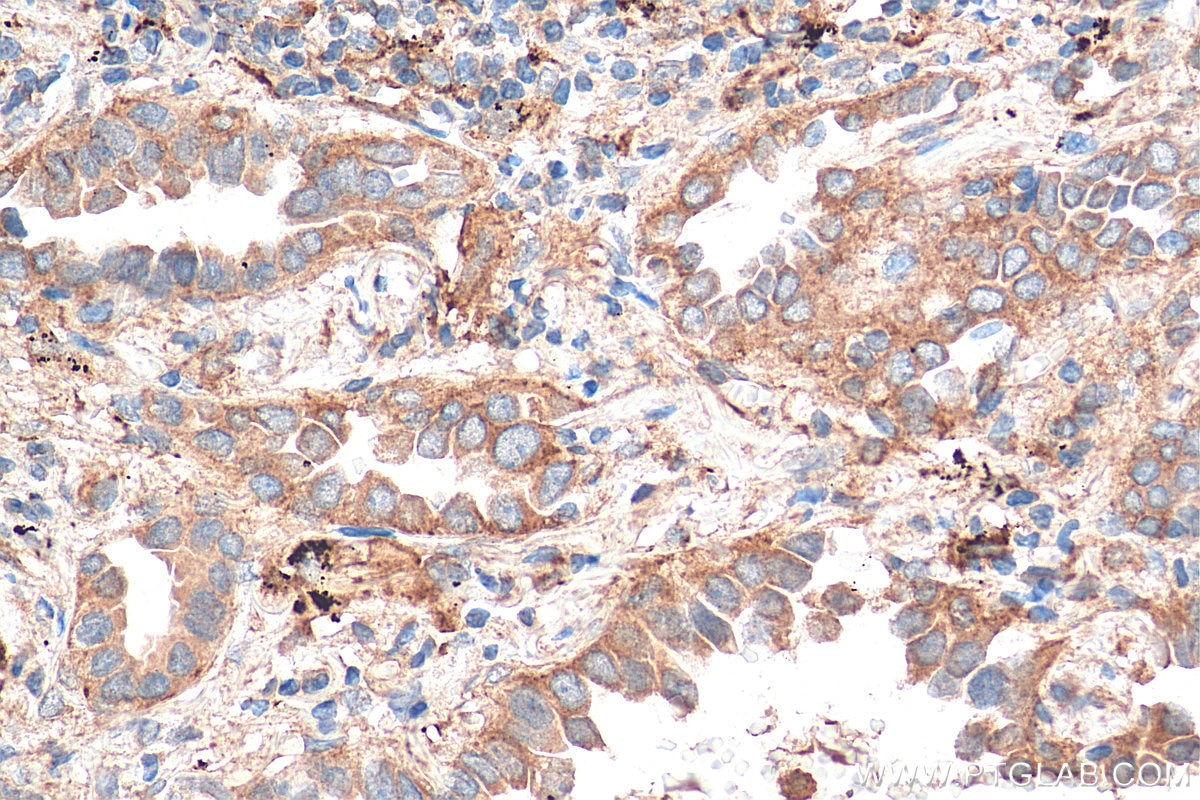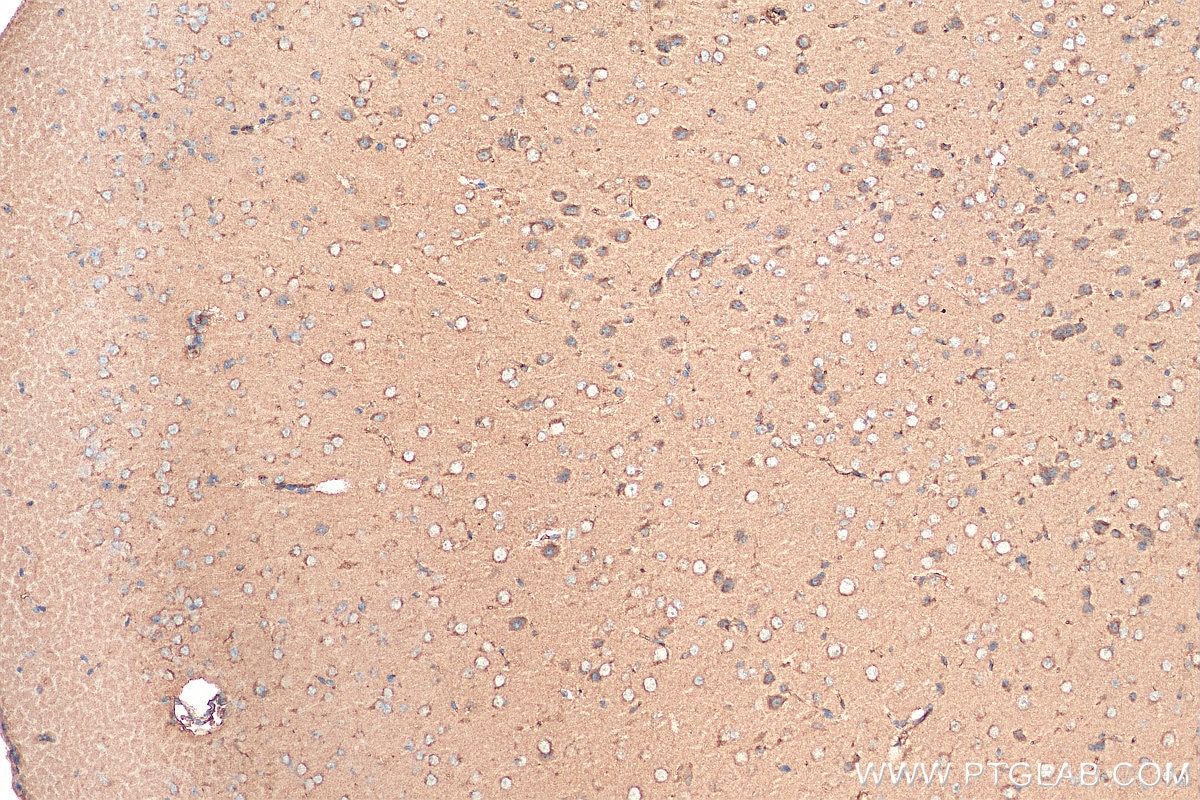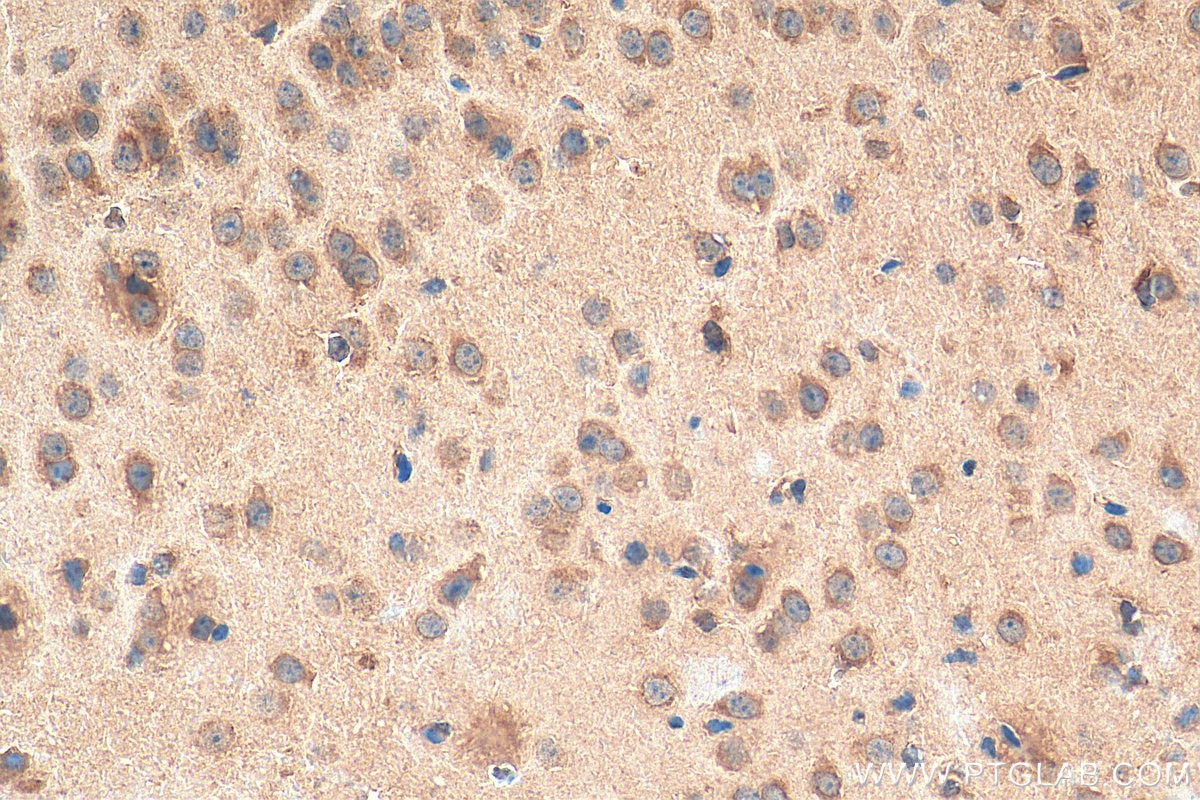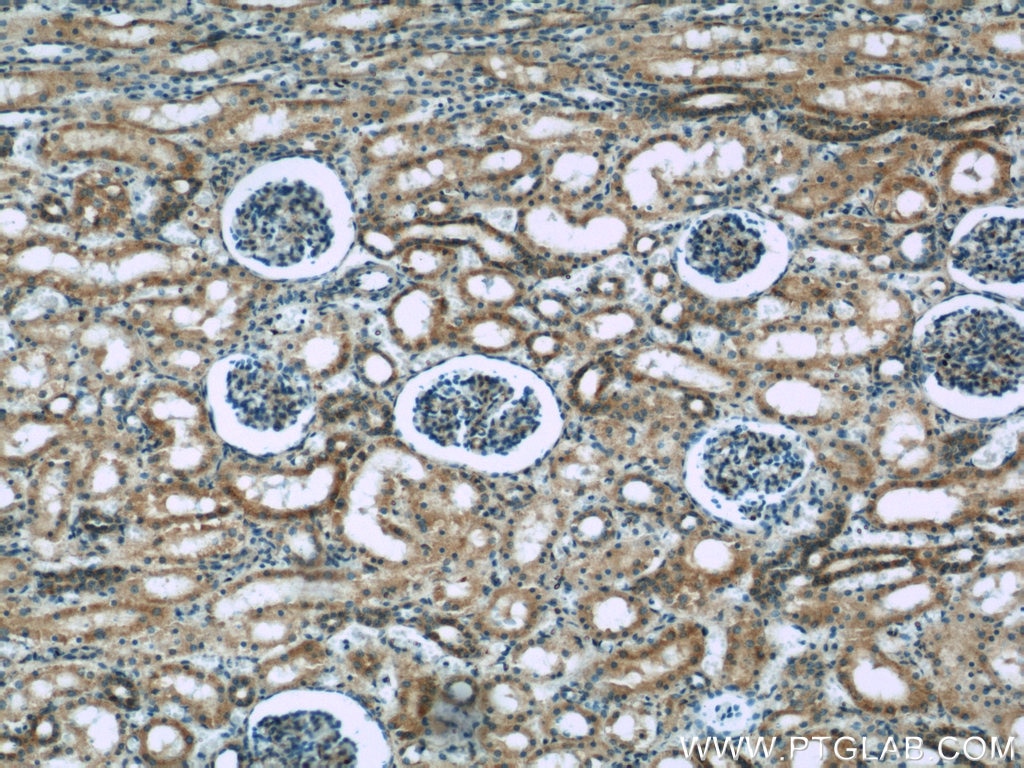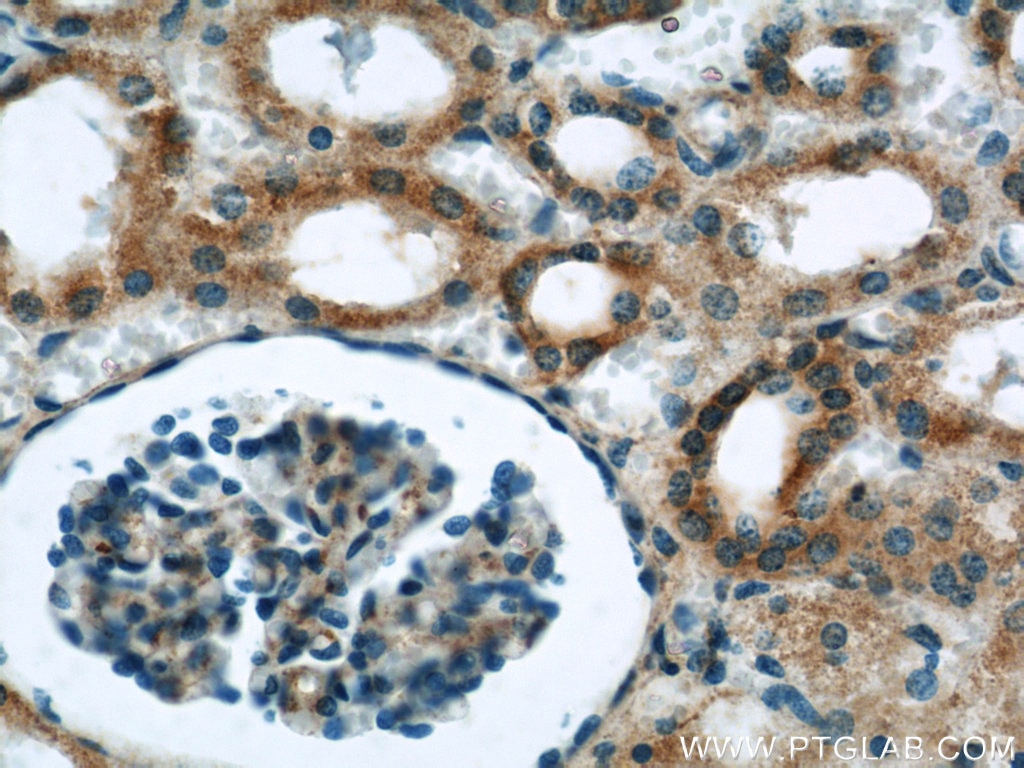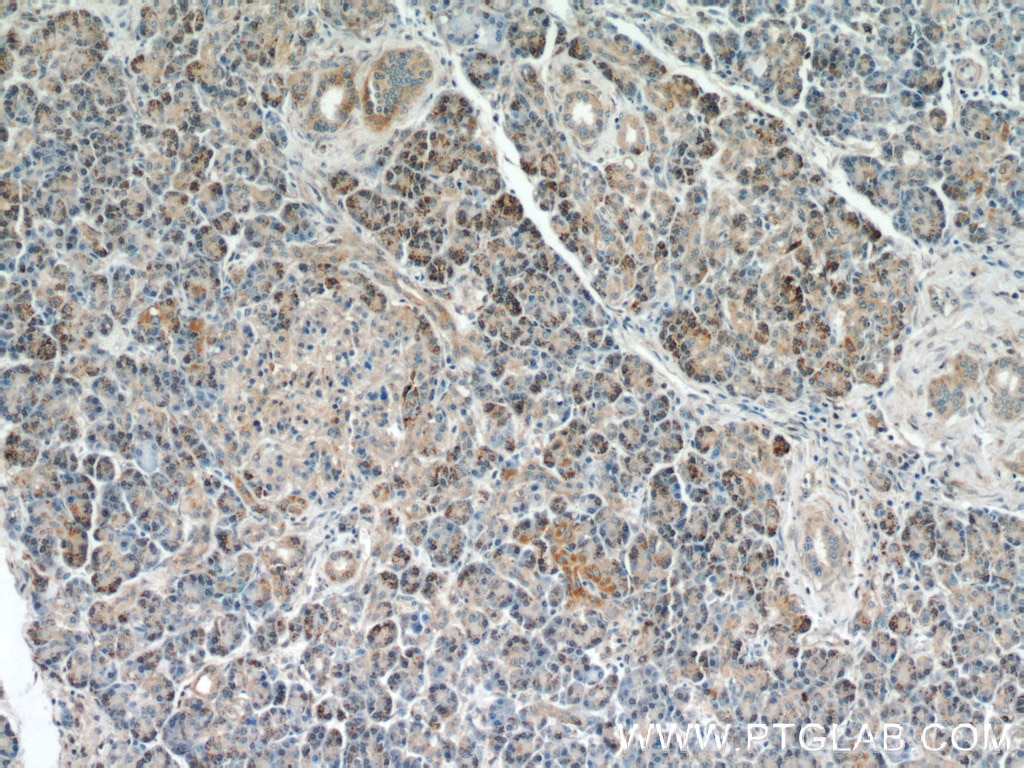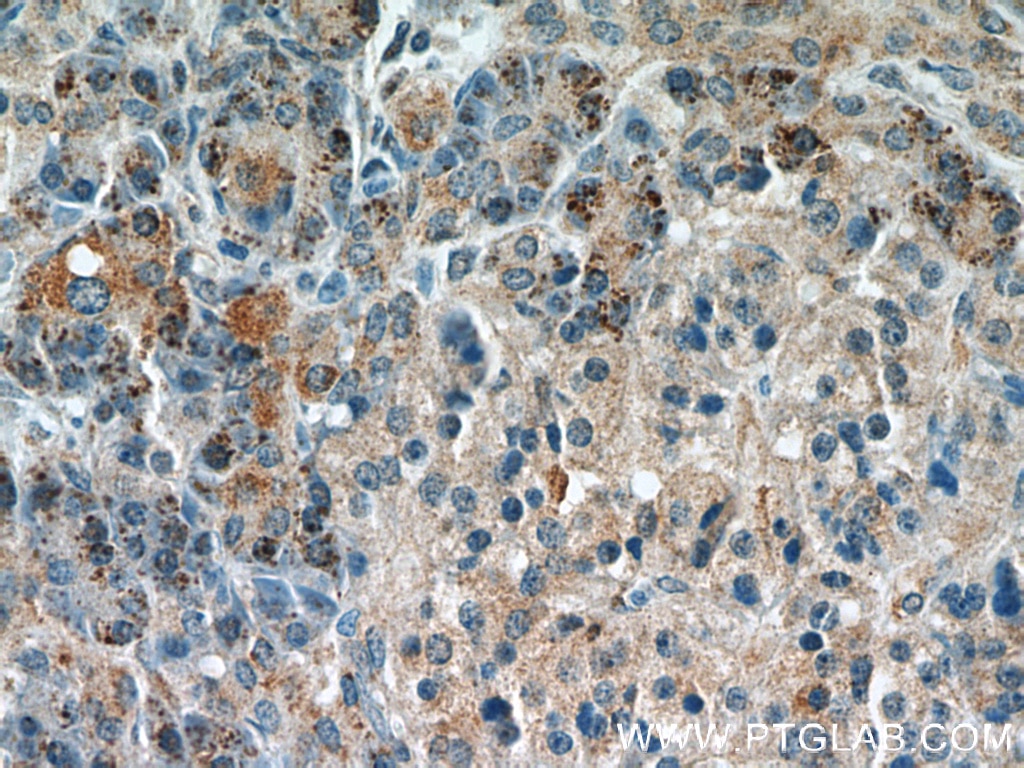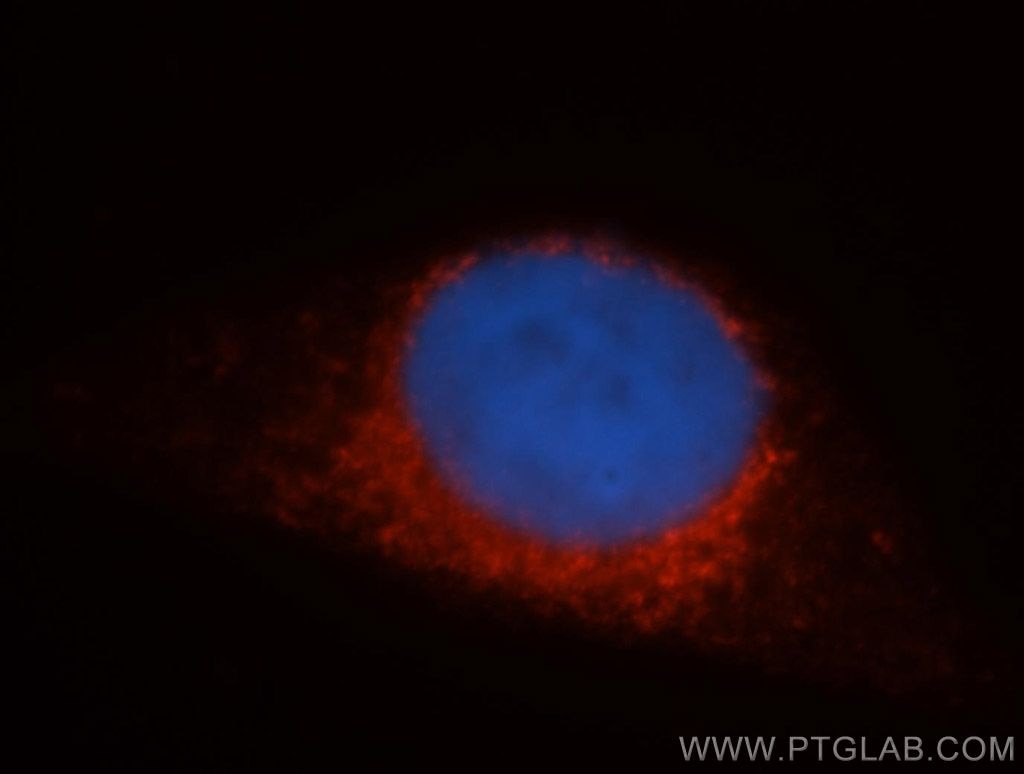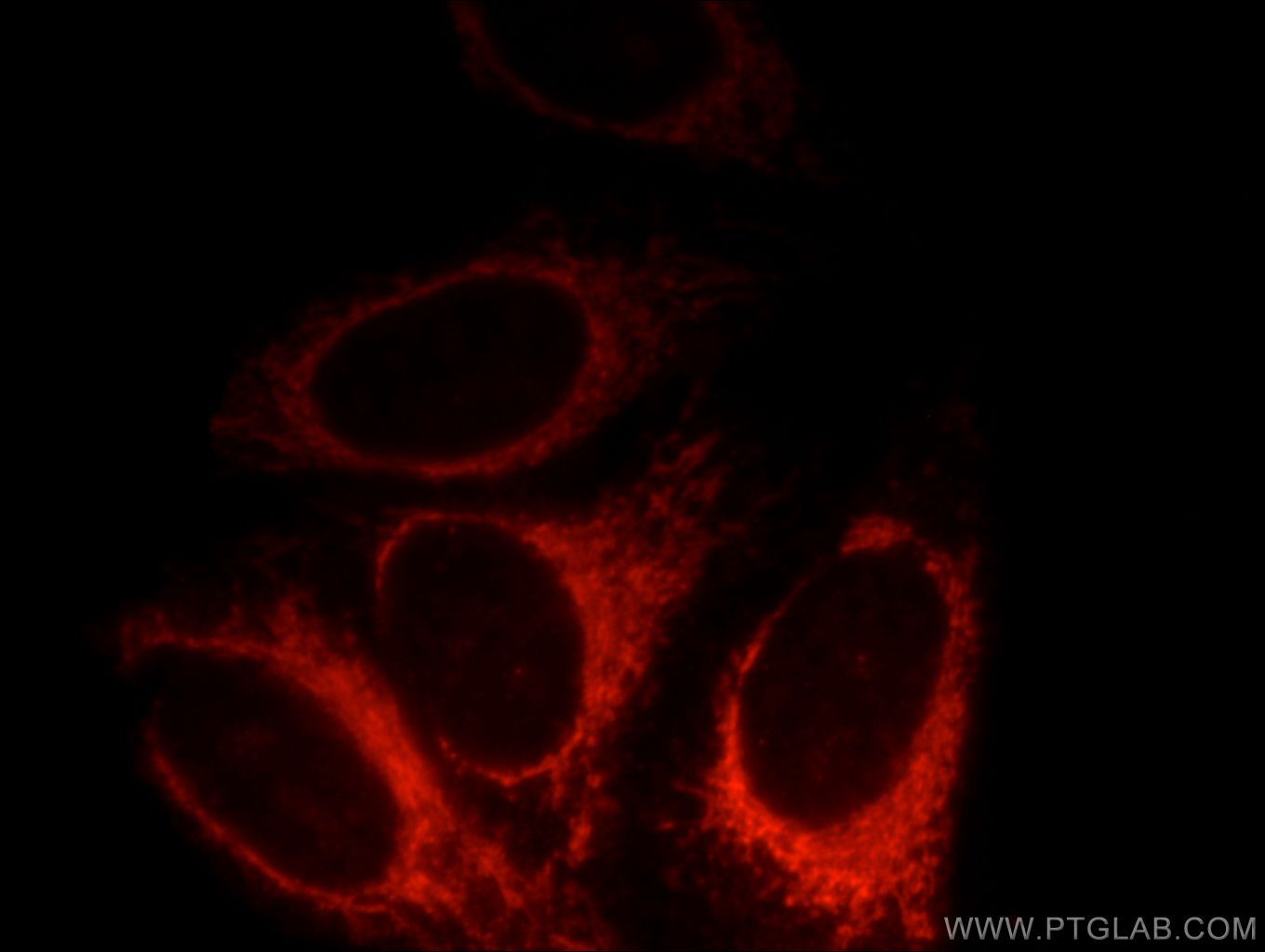- Phare
- Validé par KD/KO
Anticorps Polyclonal de lapin anti-Syntaxin 12
Syntaxin 12 Polyclonal Antibody for WB, IF, IHC, ELISA
Hôte / Isotype
Lapin / IgG
Réactivité testée
Humain, rat, souris
Applications
WB, IHC, IF/ICC, ELISA
Conjugaison
Non conjugué
N° de cat : 14259-1-AP
Synonymes
Galerie de données de validation
Applications testées
| Résultats positifs en WB | cellules HEK-293, cellules BxPC-3, tissu cardiaque de souris, tissu cardiaque humain, tissu cérébral de souris, tissu cérébral humain, tissu rénal de souris |
| Résultats positifs en IHC | tissu de cancer du poumon humain, tissu cérébral de souris, tissu pancréatique humain, tissu rénal humain il est suggéré de démasquer l'antigène avec un tampon de TE buffer pH 9.0; (*) À défaut, 'le démasquage de l'antigène peut être 'effectué avec un tampon citrate pH 6,0. |
| Résultats positifs en IF/ICC | cellules HepG2 |
Dilution recommandée
| Application | Dilution |
|---|---|
| Western Blot (WB) | WB : 1:1000-1:6000 |
| Immunohistochimie (IHC) | IHC : 1:50-1:500 |
| Immunofluorescence (IF)/ICC | IF/ICC : 1:20-1:200 |
| It is recommended that this reagent should be titrated in each testing system to obtain optimal results. | |
| Sample-dependent, check data in validation data gallery | |
Applications publiées
| KD/KO | See 1 publications below |
| WB | See 5 publications below |
| IF | See 2 publications below |
Informations sur le produit
14259-1-AP cible Syntaxin 12 dans les applications de WB, IHC, IF/ICC, ELISA et montre une réactivité avec des échantillons Humain, rat, souris
| Réactivité | Humain, rat, souris |
| Réactivité citée | rat, Humain |
| Hôte / Isotype | Lapin / IgG |
| Clonalité | Polyclonal |
| Type | Anticorps |
| Immunogène | Syntaxin 12 Protéine recombinante Ag5532 |
| Nom complet | syntaxin 12 |
| Masse moléculaire calculée | 32 kDa |
| Poids moléculaire observé | 33-39 kDa, 66 kDa |
| Numéro d’acquisition GenBank | BC046999 |
| Symbole du gène | Syntaxin 12 |
| Identification du gène (NCBI) | 23673 |
| Conjugaison | Non conjugué |
| Forme | Liquide |
| Méthode de purification | Purification par affinité contre l'antigène |
| Tampon de stockage | PBS avec azoture de sodium à 0,02 % et glycérol à 50 % pH 7,3 |
| Conditions de stockage | Stocker à -20°C. Stable pendant un an après l'expédition. L'aliquotage n'est pas nécessaire pour le stockage à -20oC Les 20ul contiennent 0,1% de BSA. |
Informations générales
Syntaxin 12 (STX12), also known as STX13 or STX14, is a 276 amino acid single-pass type IV membrane protein that belongs to the syntaxin family. It is a broadly and differentially expressed SNARE protein, highly enriched in brain tissue. STX12 is localized to early and recycling endosomes and is involved in the recycling of plasma membrane proteins. It also has a role in the trafficking of MMP during degradation of ECM substrates and subsequent cellular invasion. (PMID: 9507000; 9553086; 19910495) This antibody recognizes a major 39 kDa band of endogenous STX12. In some cases, two additional bands of 33 kDa and 66 kDa could also be detected, which most likely represent a degradation product and a SNARE complex respectively (PMID: 9817754).
Protocole
| Product Specific Protocols | |
|---|---|
| WB protocol for Syntaxin 12 antibody 14259-1-AP | Download protocol |
| IHC protocol for Syntaxin 12 antibody 14259-1-AP | Download protocol |
| IF protocol for Syntaxin 12 antibody 14259-1-AP | Download protocol |
| Standard Protocols | |
|---|---|
| Click here to view our Standard Protocols |
Publications
| Species | Application | Title |
|---|---|---|
Mol Cell Syntaxin 13, a Genetic Modifier of Mutant CHMP2B in Frontotemporal Dementia, Is Required for Autophagosome Maturation.
| ||
PLoS Biol Nucleotide de novo synthesis increases breast cancer stemness and metastasis via cGMP-PKG-MAPK signaling pathway. | ||
Biochem J Phosphoproteomics reveals that the hVPS34 regulated SGK3 kinase specifically phosphorylates endosomal proteins including Syntaxin-7, Syntaxin-12, RFIP4 and WDR44. | ||
J Biol Chem Competition for cysteine acylation by C16:0 and C18:0 derived lipids is a global phenomenon in the proteome | ||
Mol Biol Cell Rab11 regulates autophagy at dendritic spines in an mTOR- and NMDA-dependent manner | ||
Thorac Cancer SLC34A2 promotes cell proliferation by activating STX17-mediated autophagy in esophageal squamous cell carcinoma |
